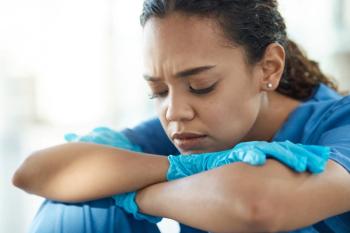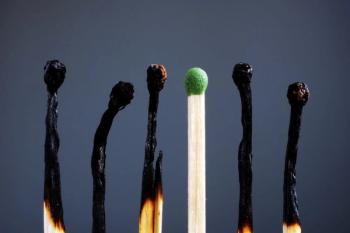Our Own Deteriorating Mental Wellness
The state of US mental health may be poor, but what about psychiatrists specifically?
PSYCHIATRIC VIEWS ON THE DAILY NEWS
In our last daily column, “
On February 18, 2022, the results of Medscape Psychiatrist Lifestyle, Happiness and Burnout Report 2022 came out.1 The report looked at our personal and professional lives.
Despite the usual limitations of the methodology of the study—a limited number of participants and a short survey—the results are still worth considering as an ongoing annual reflection of our mental health. Here are some of the results.
1. Before the pandemic, 79% of psychiatrists reported being “very” or “somewhat” happy outside of work, but now that is down to 57%.
2. Although psychiatrists are below average among physicians burning out, we are still at 38%, with emergency medicine the highest at 60%.
3. Women psychiatrists rate of burning out is at 46%, compared to 30% for men.
4. Psychiatrists try using reduced hours of work as the major strategy to reduce burnout.
5. 24% of all physicians reported being “clinically depressed” versus 39% of psychiatrists.
Looking at this data is perhaps not surprising in one sense, given the repercussions of the pandemic on the health and mental health of clinicians. That is, the increased undue stress and obstacles on healing would be expected to increase the percentage of psychiatrists burning out to some degree, and that emergency physicians on the crisis frontline would end up on top. Women psychiatrists often have increased home life stressors. Nevertheless, this data does not say a whole lot for the success of recent efforts to reduce burnout.
What does seem more unanticipated and worrisome for psychiatrists is the major increase in subjective “clinical depression,” up to the percentage of those psychiatrists burning out. What might account for that and what can help? Marital satisfaction remained high, so home life is unlikely to be primarily responsible.
My suspicion is that it is the loss of live interaction with patients. Though telepsychiatry is touted for being able to replace the risk of live treatment during the pandemic, ours is a field based and valued on close and deep live interaction with patients. If my hypothesis is correct, as the pandemic hopefully lessens and we go back to more live treatment, the depression rate should also decrease. If not, more research is indicated, as well as formal treatment.
Dr Moffic is an award-winning psychiatrist who has specialized in the cultural and ethical aspects of psychiatry. A prolific writer and speaker, he received the one-time designation of Hero of Public Psychiatry from the Assembly of the American Psychiatric Association in 2002. He is an advocate for mental health issues relate to climate instability, burnout, Islamophobia, and anti-Semitism for a better world. He serves on the Editorial Board of Psychiatric TimesTM.
Reference
1. Medscape Psychiatrist Lifestyle, Happiness and Burnout Report 2022. Medscape. February 18, 2022. Accessed February 24, 2022.
Newsletter
Receive trusted psychiatric news, expert analysis, and clinical insights — subscribe today to support your practice and your patients.








